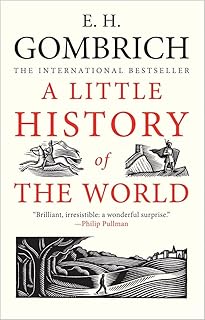Two wars, dynastic power, and a shifting world order challenge the post-1945 era. British historian Simon Sebag Montefiore sees this as a return to normality, where big powers compete for dominance. His book, “The World: A Family History of Humanity,” delves into the stories of families across history, revealing surprising characters like Basil the unibrow horse whisperer.
Simon Sebag Montefiore’s insights shed light on the current global moment, emphasizing the importance of understanding historical patterns and the impact of family dynamics on power structures. He explores the significance of individuals like Basil in shaping history through personal connections and strategic maneuvering.
The historian’s analysis extends to the concept of the 70-year peace, a period marked by a rules-based world order enforced by superpowers like the Soviet Union and the United States. However, recent events, such as Russia’s invasion of Ukraine, challenge this order, signaling a potential shift towards dynastic rule and the erosion of established norms.
Sebag Montefiore delves into the historical context of power dynamics, highlighting how figures like Putin justify actions based on past imperial ambitions. He contrasts the approaches of different nations in exerting power, emphasizing the unique challenges posed by autocratic regimes and the resurgence of dynastic rule in various parts of the world.
Reflecting on the role of family in politics, the historian explores the interplay between democracy, dynastic succession, and societal cohesion. He draws parallels between historical dynasties and modern political families, underscoring the nuanced dynamics of power and legitimacy in different governance systems.
The conversation with Sebag Montefiore delves into the complexities of modern democracy, economic systems, and societal challenges. The historian’s optimism for the future stems from a belief in human adaptability and creativity, despite looming threats such as climate change, nuclear proliferation, and technological disruptions.
As the discussion unfolds, the focus shifts to the role of capitalism, justice, and governance in shaping the trajectory of nations. Sebag Montefiore emphasizes the need for balanced economic policies, social justice, and effective governance to address the underlying challenges facing democracies and global stability.
Ultimately, the historian’s message underscores the importance of focusing on present-day realities and addressing the aspirations and needs of diverse populations. By understanding historical patterns and embracing adaptability, societies can navigate current challenges and shape a more resilient future.
📰 Related Articles
- Vibrant Hospitality Student Explores Global Opportunities Through TAFE
- Vienna’s Cultural Charms: A Journey Through History and Art
- Variety Explores Power of Women and Nashville in Entertainment
- Unveiling the Unique Romance of ‘Ghost’ Through Cinematic History
- University of Western Australia Cultivates Global Leaders Through Engagement






